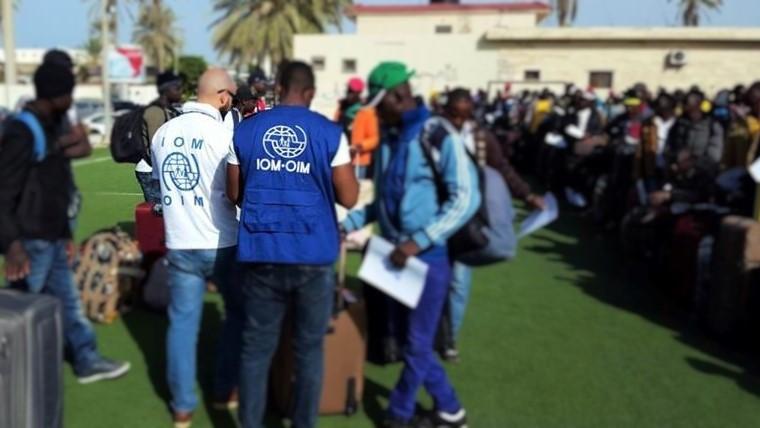Libya - IOM Libya’s Displacement Tracking Matrix is expanding its programme by increasing its Flow Monitoring coverage to 35 baladiyas, launching a pilot of Detention Centre Profiles and developing rapid response assessment capacity.
As a first step, the programme held a training for 60 enumerators from the East, South and West of Libya in Tunis on May 15 to 17. Enumerators were trained on data collection methodologies for migrant Flow Monitoring baseline assessments and surveys. DTM’s Flow Monitoring data collection activities will expand to cover 35 baladiyas (municipalities) across Libya, capturing a more holistic picture of migration patterns across the country through surveys with migrants, and observation of arrivals and departures at key migrant gathering points in each location.
The programme will be piloting Detention Centre profiles in a number of centres under the management of the Directorate for Combating Illegal Migration (DCIM). Based on the Displacement Tracking Matrix’s site assessment models, these Profiles aim to capture site and population information on each detention centre, providing the humanitarian community with an evidence base supporting more targeted support and assistance. The enumerator training covered various aspects of data collection for this activity, highlighting the importance of upholding IOM’s data protection principles during the process. Information collected through the profiles will include demographic characteristics of migrants, site specifications, the availability of various health and protection services to migrants, and various other multi-sectorial indicators to help identify specific needs and vulnerabilities.
As part of the training enumerators were also trained on rapid response assessment tools and methodologies. DTM will deploy rapid assessments in incidences of large sudden displacement to assess the impact on local populations and identify immediate needs. Data collected will include the numbers and locations of those displaced, the identification of most vulnerable populations, the immediate needs of those displaced, and the shelter settings in which they are staying.
“It was great to know the mechanism of the work in a practical way before operating in the field as meeting all the team members will support the process of collecting the data and the information on the local and regional level,” said one of the enumerators 26-year-old Ibrahim Agila from Tripoli.
DTM’s operations are made possible by the support of the UK Department for International Development (DFID) and the European Commission’s Humanitarian Aid and Civil Protection department (ECHO).
Libya’s Displacement Tracking Matrix collects data on mobile populations in Libya to support evidence-based humanitarian responses. All reports, methodologies and datasets are available at www.globaldtm.info/libya
For further information, please contact IOM Libya: Othman Belbeisi, Tel: +216 29 600389, Email: obelbeisi@iom.int or Daniel Salmon, DTM Programme Coordinator, at +21629235097


